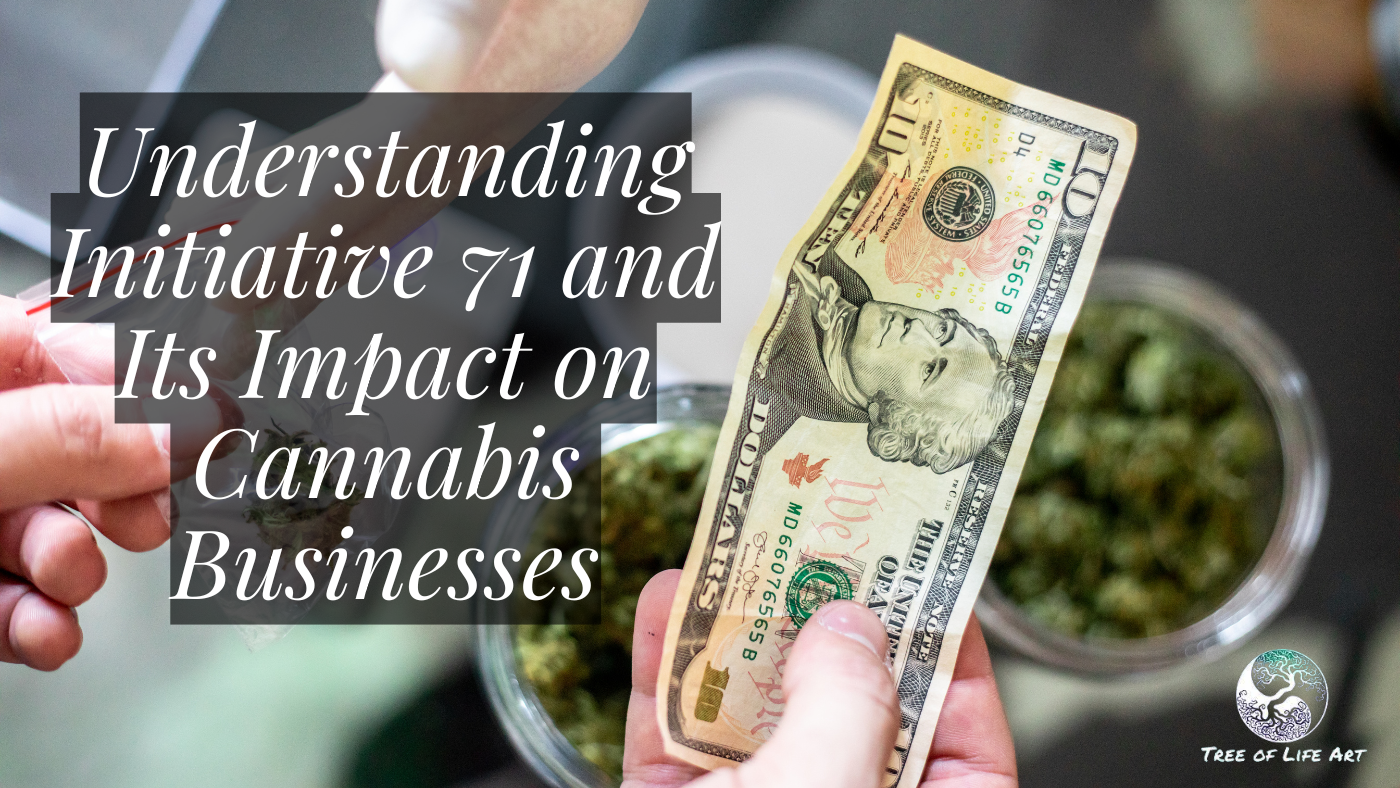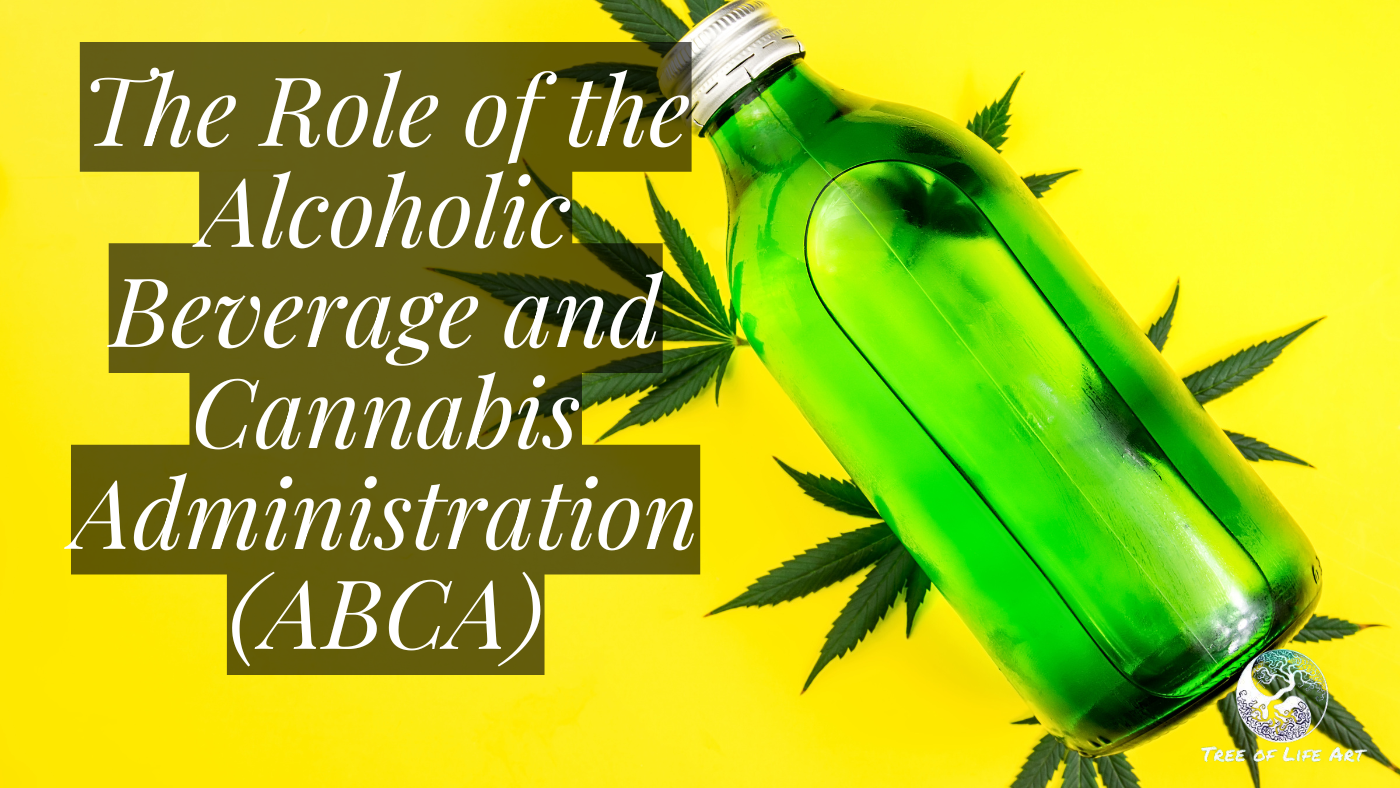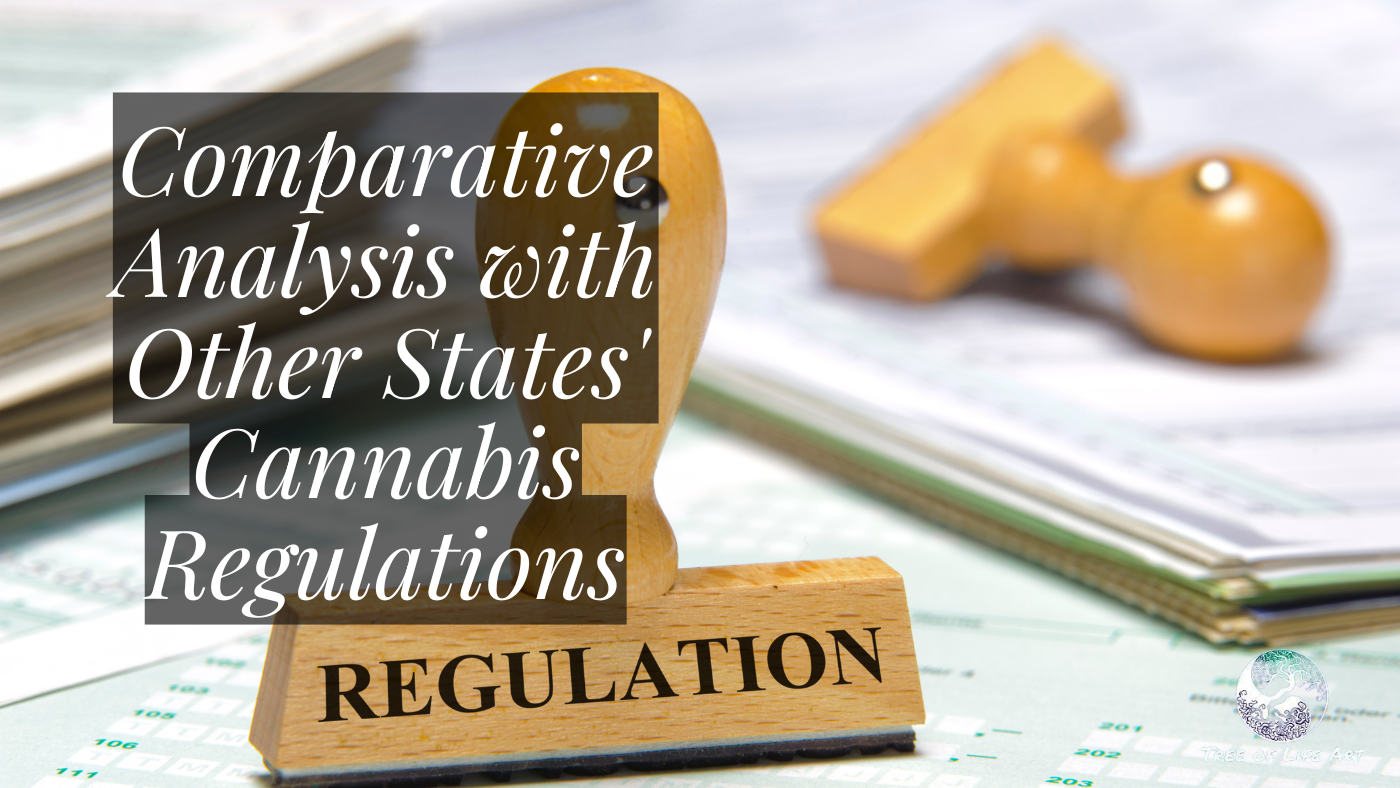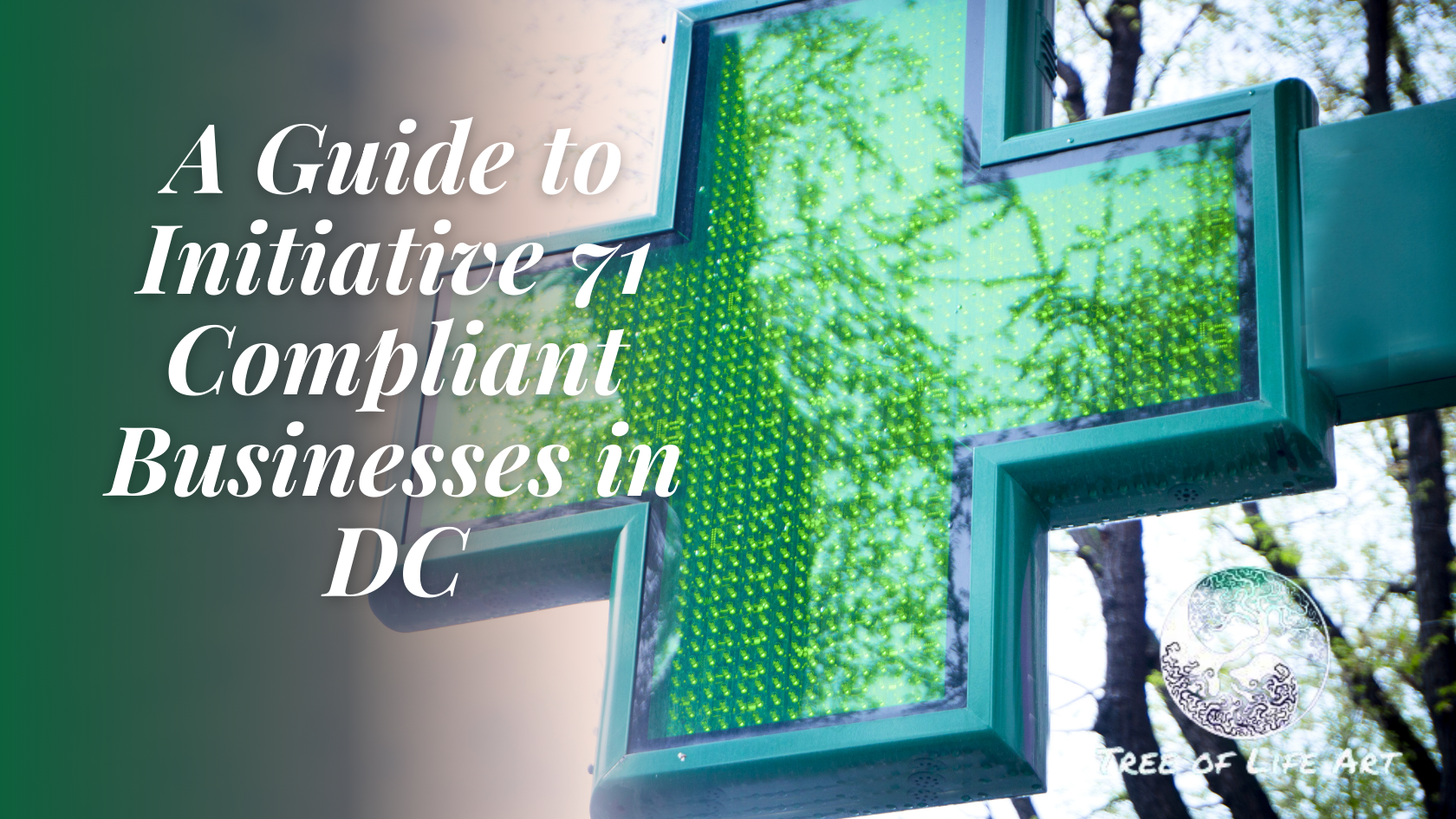Check Out Popular Products in Our Cannabis Store
Explore our most popular cannabis products and find exactly what you need to enhance your experience. From edibles to flower, we have a wide variety of products to choose from. Plus, enjoy free shipping on all orders! Visit our store today to discover your new favorite products!
Popular Products Latest ProductsIn Washington, D.C., the passing of Initiative 71 in 2014 changed the landscape for cannabis businesses. This initiative allowed adults to possess and grow small amounts of marijuana, leading to the rise of a unique “gifting” economy. Despite federal roadblocks, many businesses have found ways to comply with local laws while navigating a complex regulatory environment. This guide explores the intricacies of Initiative 71, its impact on businesses, and what consumers need to know.
Key Takeaways
- Initiative 71 allows adults over 21 to possess up to two ounces of marijuana and grow up to six plants at home.
- The “gifting” economy emerged as a workaround due to the prohibition of direct marijuana sales.
- Businesses must comply with local regulations, and many are transitioning to medical marijuana licenses.
- The Alcoholic Beverage and Cannabis Administration (ABCA) plays a crucial role in regulating and inspecting these businesses.
- Community and economic impacts are significant, contributing to local programs and ongoing public health considerations.
Understanding Initiative 71 and Its Impact on Cannabis Businesses

Understanding Initiative 71 and Its Impact on Cannabis Businesses
Initiative 71, passed by Washington D.C. voters in 2014, marked a significant shift in the legal landscape for cannabis. This measure allows adults aged 21 and over to possess up to two ounces of cannabis and grow up to six plants at home. It also permits the transfer of up to one ounce of cannabis to another adult, provided no money changes hands. Understanding these provisions is crucial for both consumers and businesses.
The Rise of Initiative 71 Compliant Businesses in DC
The passage of Initiative 71 in Washington, D.C., has led to a unique and evolving cannabis market. This measure, which legalized the possession and gifting of cannabis, has given rise to a variety of businesses that operate within its legal framework. Instead, Initiative 71 gave life to so-called “gifting” businesses because Congress blocked a fully legal recreational market. These businesses have found innovative ways to comply with the law while meeting consumer demand.
Growth of the Gifting Economy
The gifting economy has flourished under Initiative 71. Since the sale of cannabis is not permitted, businesses have adopted a model where cannabis is given as a gift with the purchase of other items. This has led to a diverse range of products being offered, from art and clothing to wellness products. The creativity of these businesses has been a key factor in their success.
Types of Compliant Businesses
Initiative 71-compliant businesses take various forms. Some operate as high-end boutiques, offering a luxury shopping experience, while others focus on community engagement and education. There are also delivery services that provide convenience for consumers. This diversity reflects the broad appeal of cannabis and the different ways it can be integrated into daily life.
Challenges Faced by Entrepreneurs
Operating within the constraints of Initiative 71 presents several challenges for entrepreneurs. The lack of a fully legal recreational market means businesses must navigate a complex legal landscape. Additionally, ongoing congressional opposition creates uncertainty for the future. Despite these hurdles, many entrepreneurs remain committed to their companies and advocate for more transparent regulations and the potential for a fully legal market.
The District’s marijuana “gifting” market was borne almost entirely out of the congressional handcuffs Republicans slapped on D.C. following the vote to legalize the drug in 2014. That gray market for years rankled lawmakers, who at times sought to crack down harder on it, drawing outcry from the entrepreneurs, including White. “These stores are considered safe for a lot of people versus going on the streets and getting robbed,” he said.
Navigating the Legal Framework for Initiative 71 Compliance
Understanding the legal framework for Initiative 71 compliance is crucial for anyone looking to open a dispensary in D.C. Adhering to its guidelines is essential to avoid legal repercussions and ensure smooth operations. This section will delve into the critical aspects of licensing, inspection, and the legal implications of non-compliance.
The Role of the Alcoholic Beverage and Cannabis Administration (ABCA)

The Role of the Alcoholic Beverage and Cannabis Administration (ABCA)
ABCA’s Regulatory Authority
The Alcoholic Beverage and Cannabis Administration (ABCA) oversees the licensing and regulation of cannabis businesses in Washington, DC. This includes cultivators, manufacturers, micro-businesses, testing facilities, off-premises retailers, and research and development facilities. ABCA ensures that all cannabis operations comply with local laws and regulations. The agency also collaborates with a Marijuana Advisory Committee of experts and community members to draft regulations and policies.
Inspection Protocols
ABCA conducts regular inspections of cannabis businesses to ensure compliance with safety and regulatory standards. These inspections cover various aspects, including product labeling, packaging, and storage. For instance, all cannabis products must be packaged in child-resistant containers and labeled with information such as THC and CBD levels, usage instructions, and potential allergens. ABCA’s inspection protocols are designed to prevent the diversion of cannabis to the illicit market and to ensure public safety.
Impact of Recent Legislation
Recent legislation has expanded ABCA’s authority to include issuing warnings, fines, and cease-and-desist orders to unlicensed cannabis businesses. This new power aims to crack down on the gray market and ensure that all cannabis operations are fully compliant with the law. Additionally, ABCA can now inspect a retailer’s books and seize cannabis that is manufactured or sold in violation of the program. This legislative change is expected to bring more businesses into the regulated market, enhancing public safety and consumer trust.
Community and Economic Impact of Initiative 71 Compliant Businesses
Economic Contributions
Initiative 71-compliant businesses have significantly boosted the local economy in Washington, DC. These businesses have created numerous job opportunities, ranging from retail positions to roles in cultivation and distribution. The economic ripple effect extends beyond direct employment, as these businesses also support local suppliers and service providers. Additionally, the tax revenue generated from these businesses contributes to public services and infrastructure improvements.
Community Reinvestment Programs
A portion of the tax revenue from cannabis sales is allocated to community reinvestment programs. These programs address economic development, homeless prevention services, and support for returning citizens. Investing in these areas, the city seeks to create a more equitable and supportive environment for all residents.
Public Perception and Social Equity
Public perception of Initiative 71-compliant businesses has evolved. Initially met with skepticism, these businesses are now seen as safer alternatives to street purchases, reducing the risk of crime and violence. The emphasis on compliance with regulations has also helped build community trust. Furthermore, these businesses are committed to promoting social equity by providing opportunities for marginalized groups and advocating for fair policies.
Washington, DC hosts diverse cannabis events, offering unique experiences and emphasizing compliance with regulations.
Case Studies of Successful Initiative 71 Compliant Businesses
Monko: A Luxury Boutique Experience
Monko, located in Mount Vernon Triangle, is a high-end shop resembling a luxury boutique. Terrence White, who runs Monko, also chairs the I-71 Committee, advocating for D.C.’s marijuana entrepreneurs. The shop offers a curated selection of cannabis products, providing a premium experience for its customers. Monko’s success highlights the potential for upscale cannabis retail in the District.
Lit City Smoke Shop: A Community-Centric Approach
Lit City Smoke Shop, situated near the DCUSA shopping center in Columbia Heights, is a clean and comfortable space designed to make customers feel at ease. Diana Alvarez, the owner, emphasizes community engagement. The shop features a coat drive box and artwork celebrating powerful women. It offers a range of cannabis paraphernalia, from basic glass pipes to high-end bongs. Alvarez’s focus on community and quality has made Lit City a beloved local spot.
Toker’s Guide: Navigating the Market
Toker’s Guide serves as a valuable resource for navigating the I-71 market. The website offers reviews and advertising for compliant businesses, helping consumers make informed choices. Hannah Clarke, the director of operations, notes that the ever-changing regulatory landscape poses challenges for entrepreneurs. Despite these hurdles, Toker’s Guide has become an essential tool for businesses and consumers in the D.C. cannabis scene.
Check Out Popular Products in Our Cannabis Store
Explore our most popular cannabis products and find exactly what you need to enhance your experience. From edibles to flower, we have a wide variety of products to choose from. Plus, enjoy free shipping on all orders! Visit our store today to discover your new favorite products!
Popular Products Latest ProductsPublic Health and Safety Considerations

Public Health and Safety Considerations
Safety Protocols in Compliant Shops
One of the significant rules to adhere to is avoiding public consumption of marijuana. While private spaces serve as safe zones for marijuana enjoyment, public spaces and federal lands are strictly off-limits. This complies with District law, which stringently prohibits the public use of marijuana, including but not restricted to streets, sidewalks, parks, and businesses. Violating this law could lead to legal repercussions. Thus, it’s advisable to consume marijuana only on private properties.
Impact on Public Health
Another critical principle for responsible use is moderation. Just like with any substance, overuse can lead to dependency and negatively impact your mental and physical health. It’s advisable to maintain a balanced approach, enjoying the benefits of cannabis without allowing it to overtake other aspects of your life.
Community Concerns and Responses
However, it’s important to note two restrictions under Initiative 71. Public smoking of marijuana and tobacco on federal property remains prohibited. These limitations reinforce responsible consumption, ensuring that the freedom the law grants does not infringe on the rights and comfort of others.
Future Prospects for Initiative 71 Compliant Businesses
The future of Initiative 71-compliant businesses in Washington, D.C., holds significant promise, especially as national attitudes toward cannabis continue to evolve. Advocacy groups and community support are pushing for more comprehensive laws that would fully legalize the sale and purchase of cannabis, eliminating the current gray areas in the market. This shift could provide a more stable and predictable business environment under Initiative 71.
Potential for Federal Legalization
The potential for federal cannabis legalization is a significant factor that could reshape the landscape for Initiative 71-compliant businesses. If federal laws change, it would remove many of the barriers that currently hinder the growth of the cannabis industry in D.C. This would simplify the regulatory framework and open up new opportunities for businesses to expand and innovate.
Expansion into Other Sectors
As the market matures, there is a growing interest in expanding into other sectors beyond traditional retail. Businesses are exploring opportunities in areas such as cultivation, processing, and even cannabis tourism. This diversification could help stabilize the market and provide additional revenue streams for entrepreneurs.
Long-Term Sustainability
Ensuring the long-term sustainability of Initiative 71-compliant businesses will require ongoing efforts to adapt to changing regulations and market conditions. Entrepreneurs must stay informed about legal requirements and be prepared to adjust their business models as needed. Community reinvestment programs and public education campaigns can also play a crucial role in maintaining public support and ensuring the industry’s responsible growth.
The future of Initiative 71 compliant businesses in D.C. is closely tied to broader legislative changes and market dynamics. Entrepreneurs must remain agile and proactive to navigate this evolving landscape successfully.
Consumer Guide to Initiative 71 Compliant Shops
Navigating the world of Initiative 71-compliant shops in Washington, DC, can be a bit tricky. This guide aims to help you understand what to look for and how to make the most of your visit to these unique establishments.
The Role of Advocacy and Support Organizations
Advocacy and support organizations have been pivotal in shaping the cannabis landscape in Washington, DC. These groups have tirelessly worked to navigate the complex legislative processes, advocating for the rights of users and industry workers alike. Their efforts have not only influenced the law but also paved the way for a burgeoning cannabis industry in the city. Cannabis activists have played a key role in advocating policy changes, ensuring that the voices of the community are heard and respected.
Comparative Analysis with Other States’ Cannabis Regulations

Comparative Analysis with Other States’ Cannabis Regulations
Differences in Legal Frameworks
Cannabis regulations vary significantly across the United States. While some states have fully legalized both recreational and medical cannabis, others have only approved it for medical use. For instance, California allows the sale of cannabis in licensed dispensaries, whereas Washington, D.C. operates under a unique gifting economy due to congressional restrictions. This means that in D.C., cannabis can be transferred without direct sales, creating a gray market that complicates enforcement and regulation.
Lessons Learned from Other Jurisdictions
Examining the experiences of other states can provide valuable insights for D.C. One key lesson is the importance of a clear regulatory framework. States like Colorado and Oregon have established comprehensive systems that include licensing, taxation, and quality control measures. These frameworks not only ensure consumer safety but also generate significant tax revenue. D.C. could benefit from adopting similar measures to streamline its cannabis market and enhance public safety.
Implications for Policy Development
The differences in cannabis regulations across states highlight the need for tailored policy development. D.C.’s current approach, influenced by congressional opposition, limits its ability to regulate and tax cannabis sales fully. However, potential changes at the federal level could open new avenues for policy development. By learning from states with successful cannabis programs, D.C. can craft policies that balance public health, safety, and economic benefits.
When comparing cannabis regulations across different states, it’s clear that each has its unique approach. Some states have strict rules, while others are more relaxed. Are you curious to see how our regulations stack up? Visit our website for a detailed breakdown and discover how we ensure top-quality products and services.
Conclusion
In summary, the landscape of Initiative 71-compliant businesses in Washington, DC, is dynamic and evolving. With over 200 gifting shops and a growing number of these transitioning to medical marijuana licenses, the industry is undergoing significant changes. The new regulations and increased enforcement by the Alcoholic Beverage and Cannabis Administration aim to bring more structure and safety to the market. While challenges such as community opposition and cultivation concerns persist, the overall sentiment among entrepreneurs is positive. They see these changes as necessary steps towards a more regulated and secure cannabis industry. As the District continues to navigate these complexities, it remains crucial for consumers and businesses alike to stay informed and compliant with the evolving legal landscape.
Frequently Asked Questions
What is Initiative 71?
Initiative 71 is a law passed by Washington, D.C. voters in 2014. It allows adults 21 and older to possess up to two ounces of marijuana and grow up to six plants at home. The law also permits gifting up to one ounce of marijuana to another adult.
Can I buy marijuana in D.C.?
No, you can’t buy marijuana directly. However, you can receive it as a gift when you purchase other items like t-shirts or stickers from Initiative 71-compliant shops.
What are Initiative 71-compliant businesses?
These are businesses that follow the rules set by Initiative 71. They do not sell marijuana directly but offer it as a gift with the purchase of other products.
Is it legal to smoke marijuana in public in D.C.?
No, public consumption of marijuana is still illegal in Washington, D.C. You can only use it in private spaces.
What should I bring when visiting an Initiative 71-compliant shop?
You must bring a valid ID proving you are 21 or older to receive marijuana gifts.
Are there any penalties for non-compliance with Initiative 71?
Yes, businesses that do not comply with Initiative 71 can face fines, warnings, and even closure by the Alcoholic Beverage and Cannabis Administration (ABCA).
How can I tell if a shop is Initiative 71 compliant?
Look for shops that offer marijuana as a gift with the purchase of other items. They should not be selling marijuana directly. You can also check reviews and ask the staff.
What is the Alcoholic Beverage and Cannabis Administration (ABCA)?
The ABCA is the agency responsible for regulating and enforcing cannabis laws in Washington, D.C. It conducts inspections and ensures businesses comply with Initiative 71.
Check Out Popular Products in Our Cannabis Store
Explore our most popular cannabis products and find exactly what you need to enhance your experience. From edibles to flower, we have a wide variety of products to choose from. Plus, enjoy free shipping on all orders! Visit our store today to discover your new favorite products!
Popular Products Latest Products
